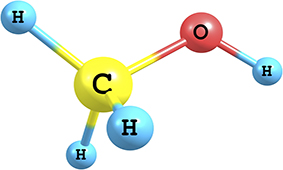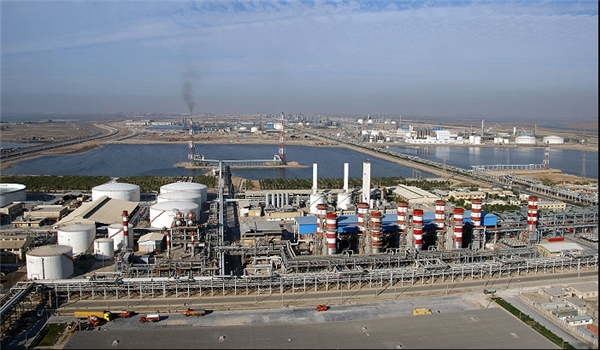
US Unable to Hinder Iran’s Methanol Exports

Iran keeps selling its methanol despite US sanctions on the country’s exports, Managing Director of Apadana Persian Gulf Petrochemical Company Jalil Qassami said at a news conference on Tuesday, adding, “Our market for methanol exports is guaranteed and we have no worries about exporting this product,” he told a news conference.
His remarks came a week after Vice President Eshaq Jahangiri said Iran is still selling its oil despite the sanctions and that Washington’s “maximum pressure” on Tehran has failed.
The assertion countered US Secretary of State Mike Pompeo’s claim that the sanctions on Tehran had been “incredibly effective”, resulting in a decrease in Iran’s wealth and diminished ability to trade with the rest of the world.
The United States has pledged to squeeze Iran’s oil exports – the country’s main source of revenue – to a trickle, but Jahangiri stated that the plan has failed.
China, which has major methanol-to-olefins capacities, is the key target market for Iranian supplies. Its top five importers account for 60% of Iranian methanol supplies to China.
India was another major buyer of the Iranian methanol before the United States targeted Iran’s oil, petrochemical, steel, cement and automotive industry with sanctions last year. Iranian methanol shipments also went to Europe, with Italy accounting for the bulk of imports.
According to Qassami, Iran currently produces 8.3 million tonnes of methanol a year, 300,000 tonnes of which is consumed domestically and the remaining 8 million tonnes is exported.
The US has special interest in trying to curb Iran’s methanol exports. Washington has been working to more than triple its capacities and shift from an importer to an exporter, with Europe and Asia within its sights.
Last week, it was announced that Iranian petrochemical plants in Pars Energy Special Economic Zone have exported 1,626,458 metric tons of products in the last local calendar month of Aban (October 21 – November 22), which indicated a 39% jump in comparison with corresponding period in the last year.
Last month, CEO of Jam Petrochemical Plant Mohammad Reza Saeedi said that Iranian petrochemical plants are defeating the US sanctions against the country as they have managed to materialize their objectives in sales and production so far.
According to the National Petrochemical Company (NPC), Saeedi said the company had developed detailed plans for enhancing its output and carrying out new projects.
“Despite the sanctions and reduced price of polymer products, our company has been able to materialize its sales and production goals,” he said.
The official further added that the sanctions had indeed created some trouble for the company, adding, that, however, by tapping domestic capabilities “we can continue on our path to prosperity and success”.
He said Jam Petrochemical Plant was focused on promoting the status quo, developing market presence, diversifying products, and production of new polymer grades.
Earlier in November, CEO of the Tondgouyan Petrochemical plant (TPC) Seyed Reza Qassemi Shahri said that the TPC, the largest supplier of PET in Iran, had recorded a superb performance in the first 7 months of the current local calendar year (March 21-October 22) with an output at 103% of its nameplate capacity.
He added that the company had boosted its output and its output exceeded the plant’s nameplate capacity in the first 7 months of the current calendar year.
In October, Caretaker of the Planning and Development Management of Iran’s National Petrochemical Company (NPC) Ali Asqar Goudarzi Farahani said that the country is expecting two leaps in its petrochemical production in 2021 and 2025 to hit the yearly output of 133 million tons in 5 years.
A week before that, Iranian Oil Minister Bijan Namdar Zanganeh had said that his country is working on the development of refineries and petrochemical complexes along Makran coasts, a region comprising about 1,500 km of shoreline along the Sea of Oman and the Indian Ocean.
Zanganeh had announced in mid-September that the country has made great progress in the production of different petrochemicals and will further expand its capacities in future.
In relevant remarks early in September, Iranian Government Spokesman Ali Rabiyee had also downplayed the effects of US sanctions against his country, stressing that Iran had many options for exporting its crude.
"Despite the espionage acts by Israel and the US, I clearly declare that we sell our oil as much as we need through planning," Rabiyee said.
He explained that Iran has 15 neighbors and is located in a region with many opportunities, and added, "We will be able to sell our oil through different methods and fortunately, there is good progress in advancing oil discoveries and plans."



Gold price edges up as market awaits Fed minutes, Powell speech

Glencore trader who led ill-fated battery recycling push to exit

Emirates Global Aluminium unit to exit Guinea after mine seized

Iron ore price dips on China blast furnace cuts, US trade restrictions

Roshel, Swebor partner to produce ballistic-grade steel in Canada

US hikes steel, aluminum tariffs on imported wind turbines, cranes, railcars

EverMetal launches US-based critical metals recycling platform

Afghanistan says China seeks its participation in Belt and Road Initiative

Trump weighs using $2 billion in CHIPS Act funding for critical minerals

First Quantum drops plan to sell stakes in Zambia copper mines

Ivanhoe advances Kamoa dewatering plan, plans forecasts

Texas factory gives Chinese copper firm an edge in tariff war

Pan American locks in $2.1B takeover of MAG Silver

Iron ore prices hit one-week high after fatal incident halts Rio Tinto’s Simandou project

US adds copper, potash, silicon in critical minerals list shake-up

Barrick’s Reko Diq in line for $410M ADB backing

Gold price gains 1% as Powell gives dovish signal

Electra converts debt, launches $30M raise to jumpstart stalled cobalt refinery

Gold boom drives rising costs for Aussie producers

First Quantum drops plan to sell stakes in Zambia copper mines

Ivanhoe advances Kamoa dewatering plan, plans forecasts

Texas factory gives Chinese copper firm an edge in tariff war

Pan American locks in $2.1B takeover of MAG Silver

Iron ore prices hit one-week high after fatal incident halts Rio Tinto’s Simandou project

US adds copper, potash, silicon in critical minerals list shake-up

Barrick’s Reko Diq in line for $410M ADB backing

Gold price gains 1% as Powell gives dovish signal

Electra converts debt, launches $30M raise to jumpstart stalled cobalt refinery

















